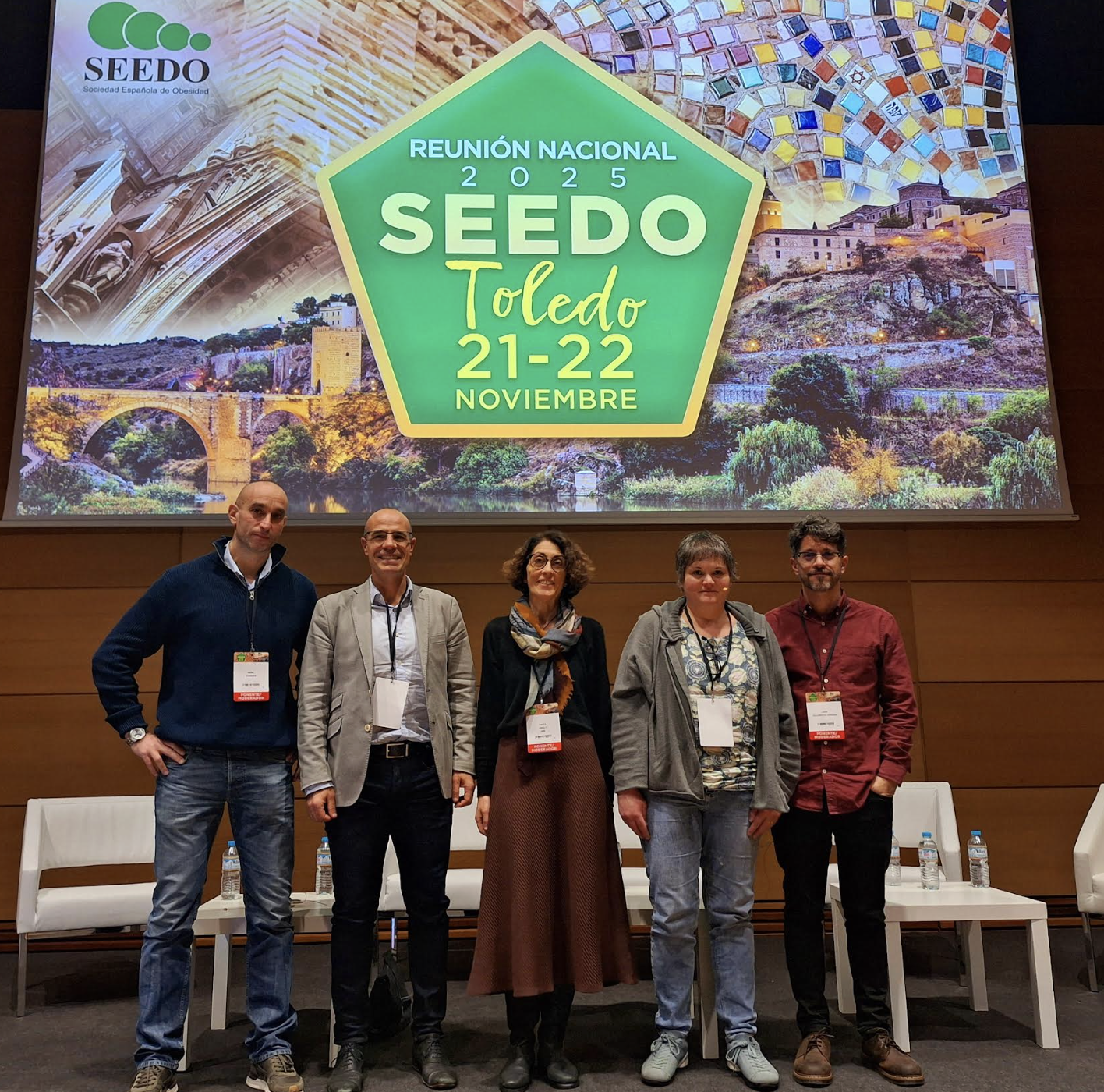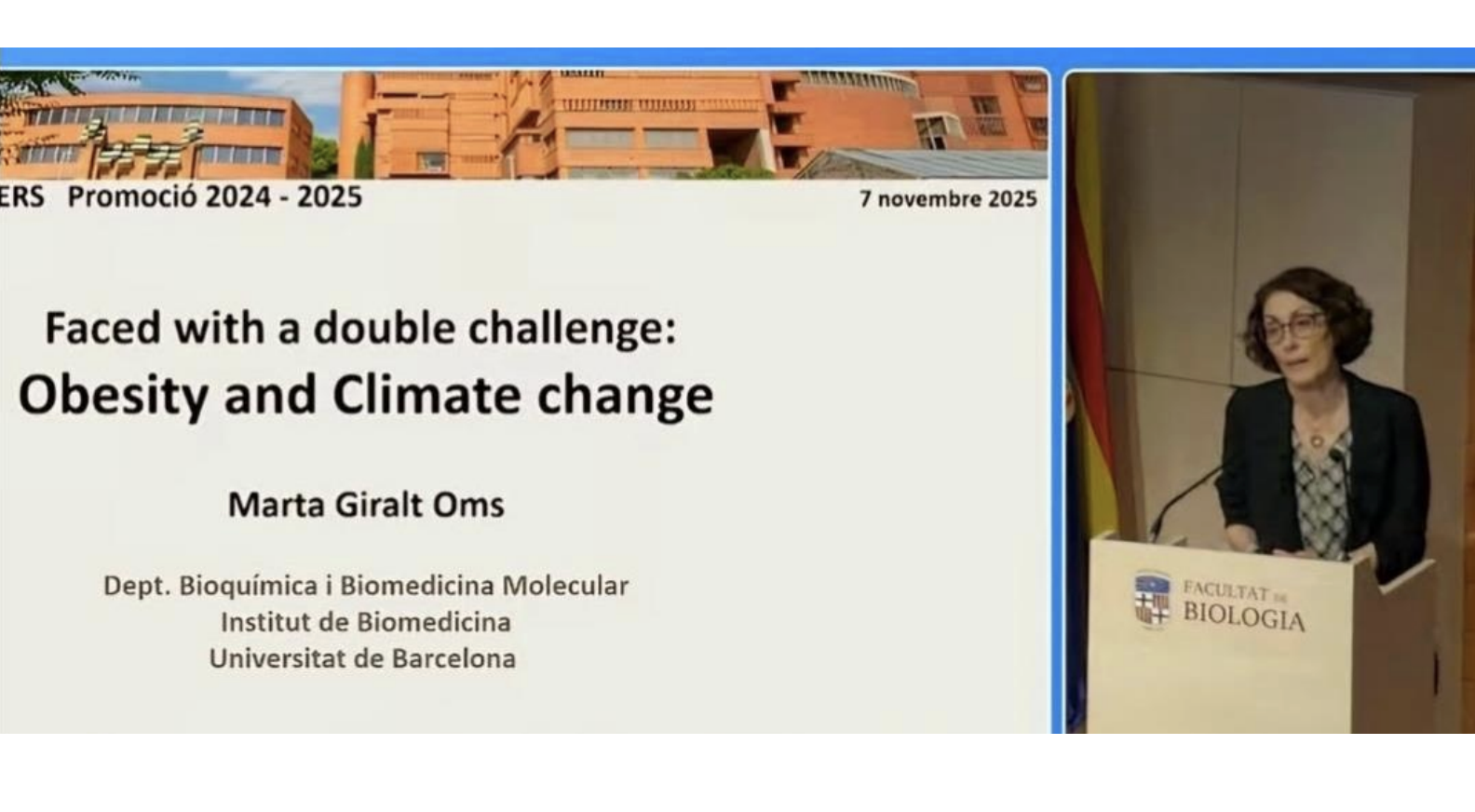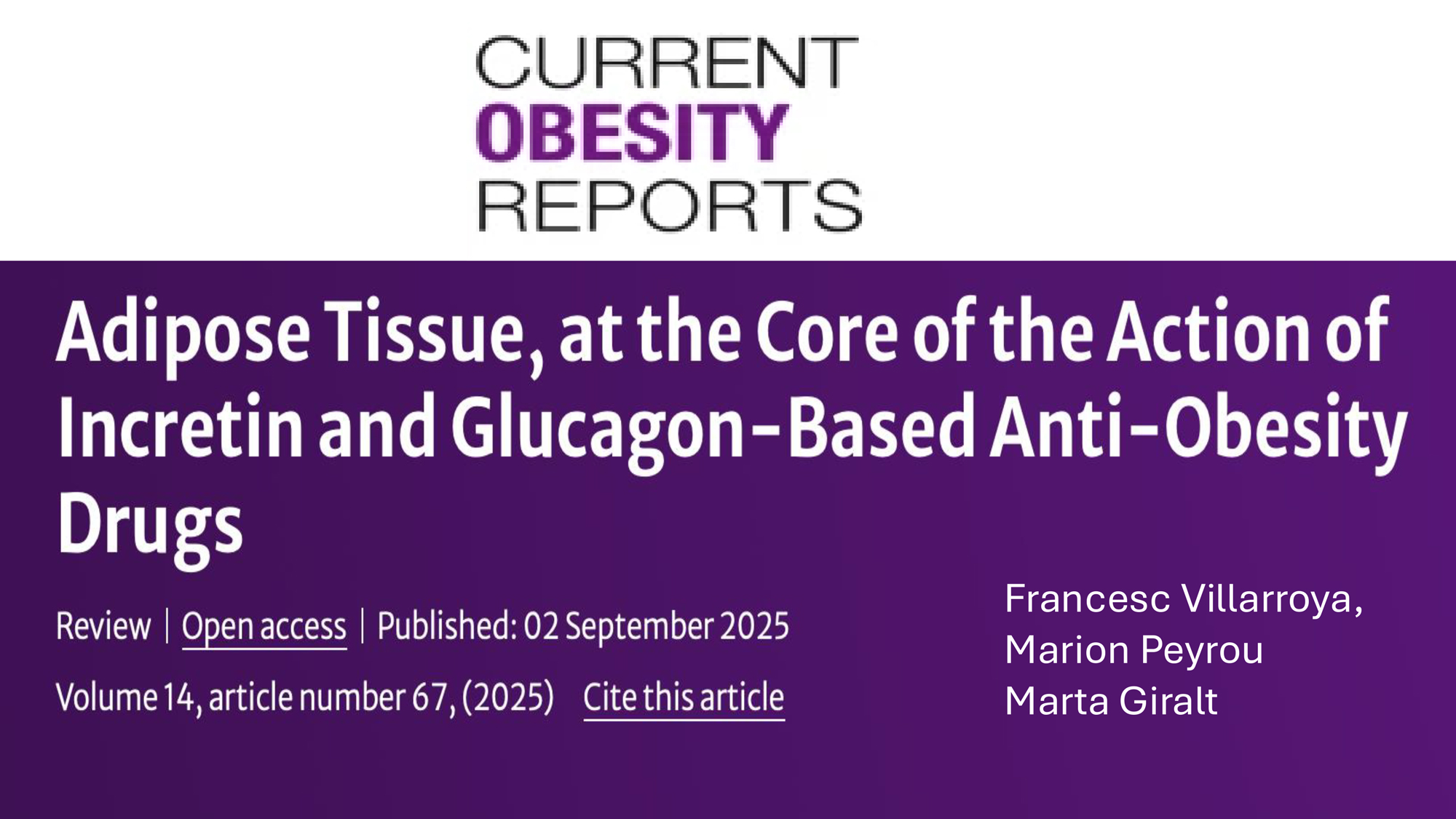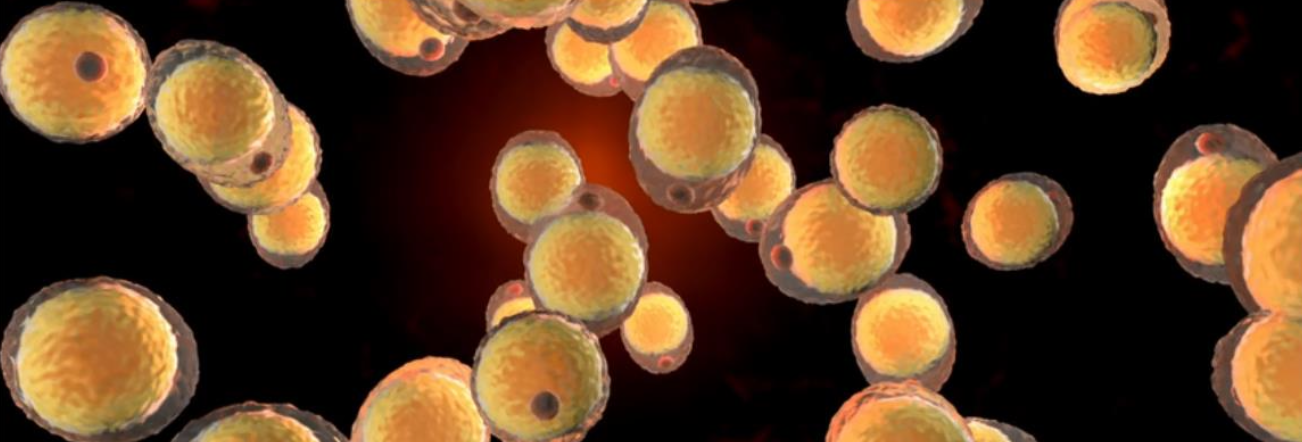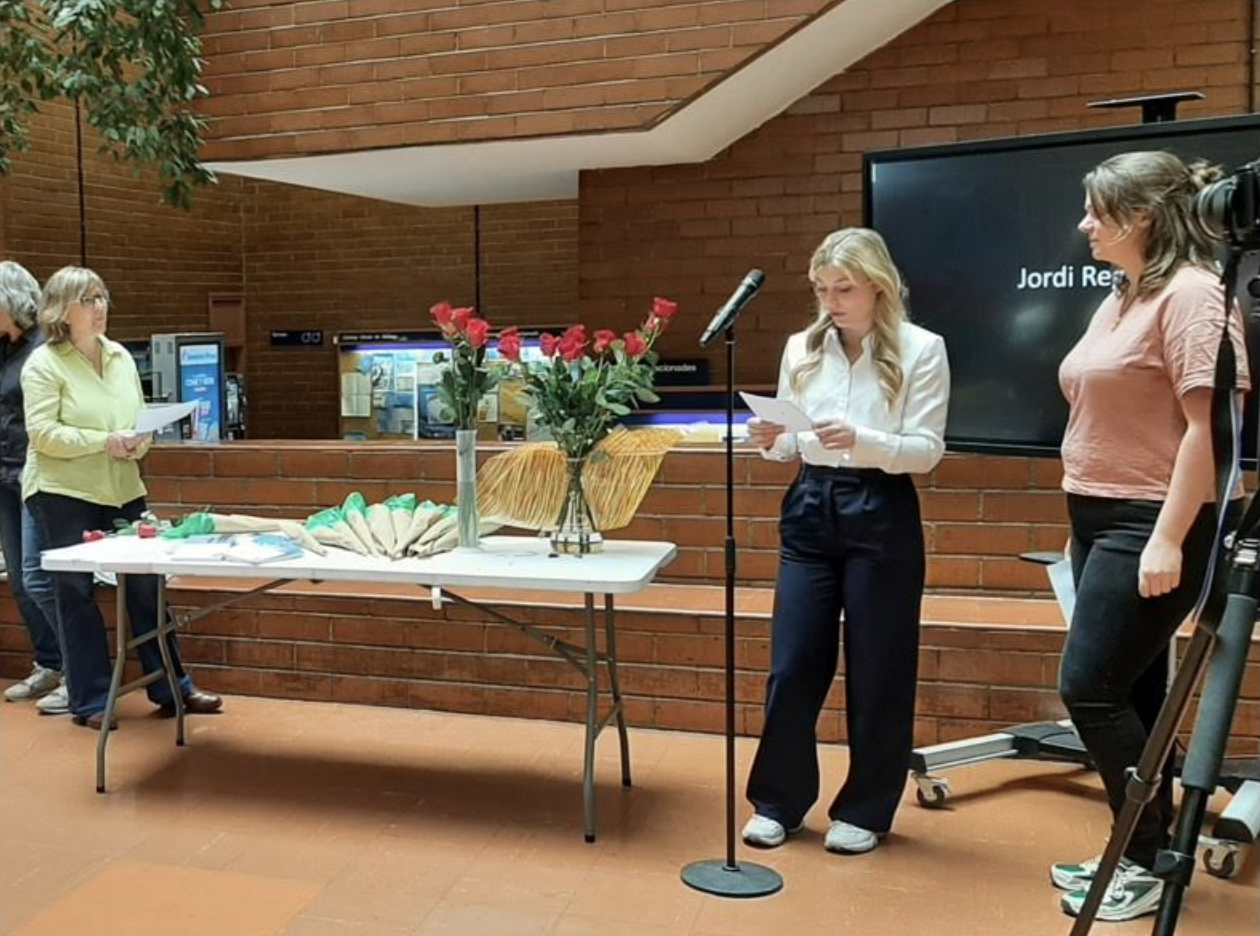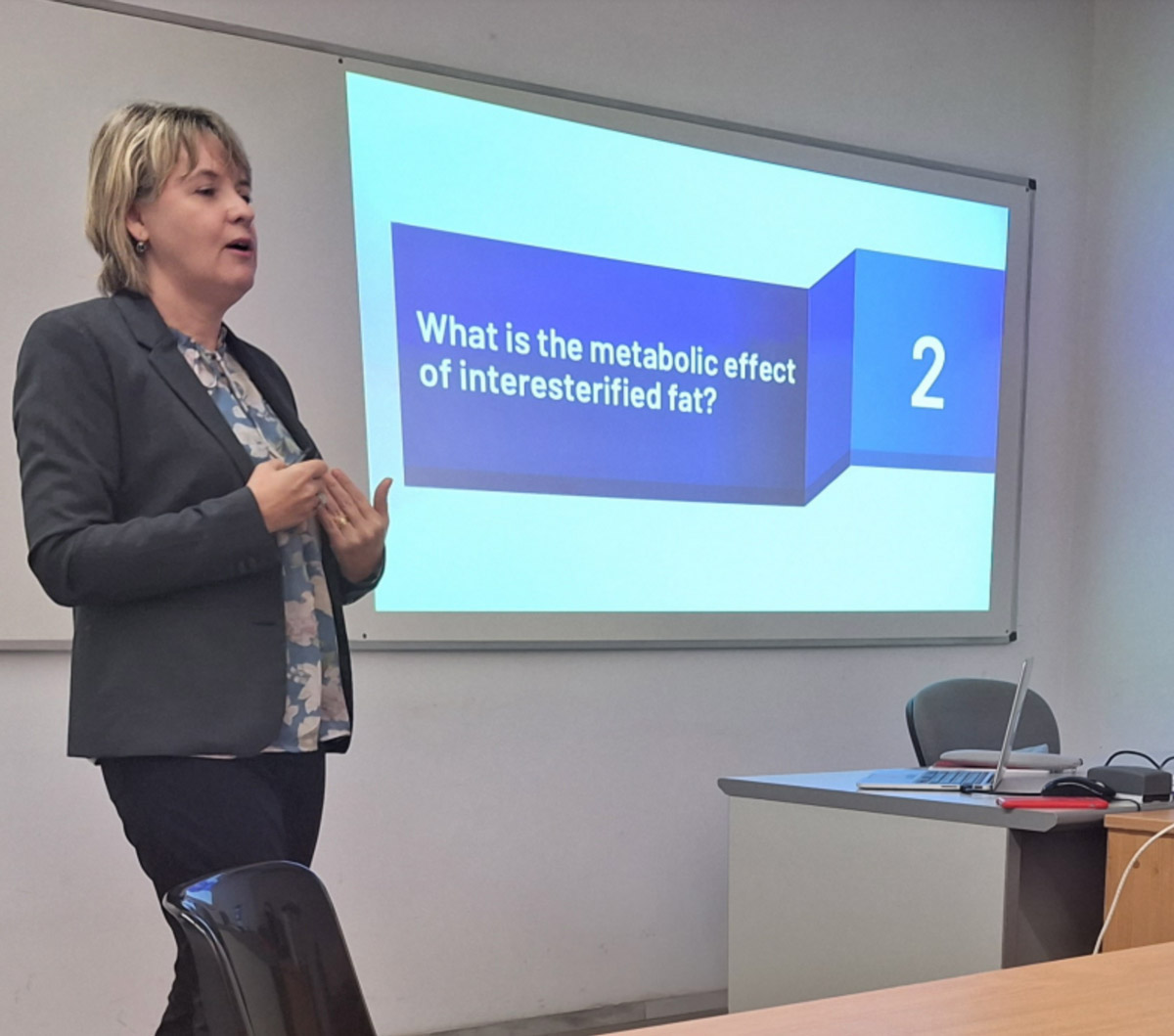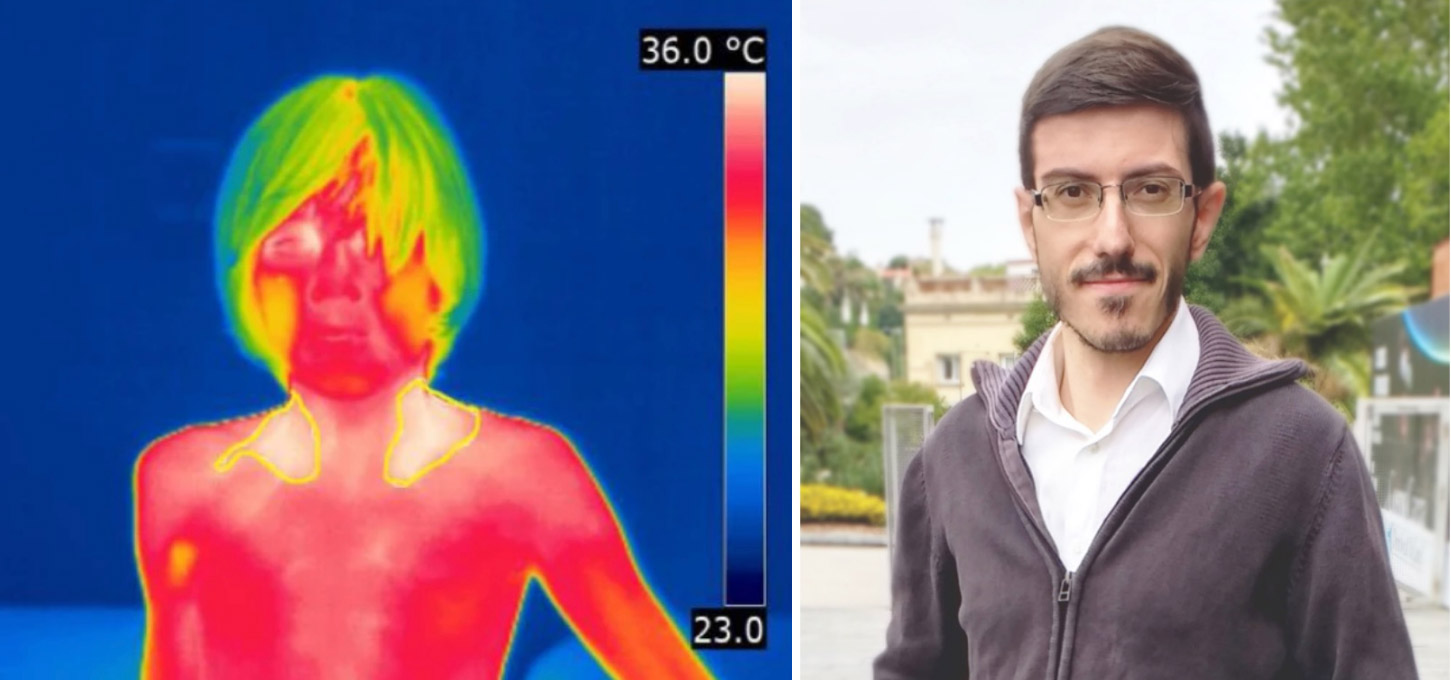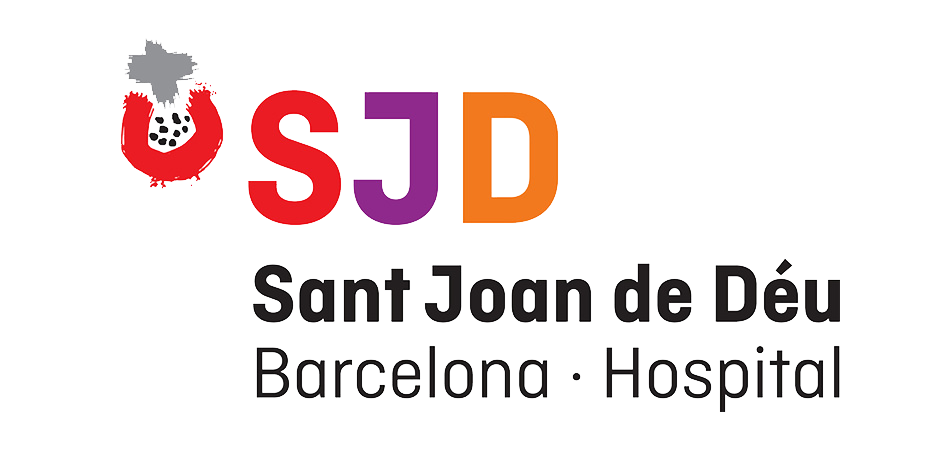
MOLECULAR METABOLISM AND DISEASE
Department of Biochemistry and Molecular Biomedicine Faculty of Biology. University of Barcelona
Our research group is focused on the study of the molecular and physiological basis of control of energy metabolism, and how it relates to human pathologies. We study the molecular mechanisms of brown, beige and white adipocyte plasticity, as well as muscle and hepatic metabolism. Molecular actors conveying new metabolic and endocrine functions of cells, tissues and organs are identified and characterized. Identification of the signaling molecules determining cellular and organ cross-talk is a main research subject.
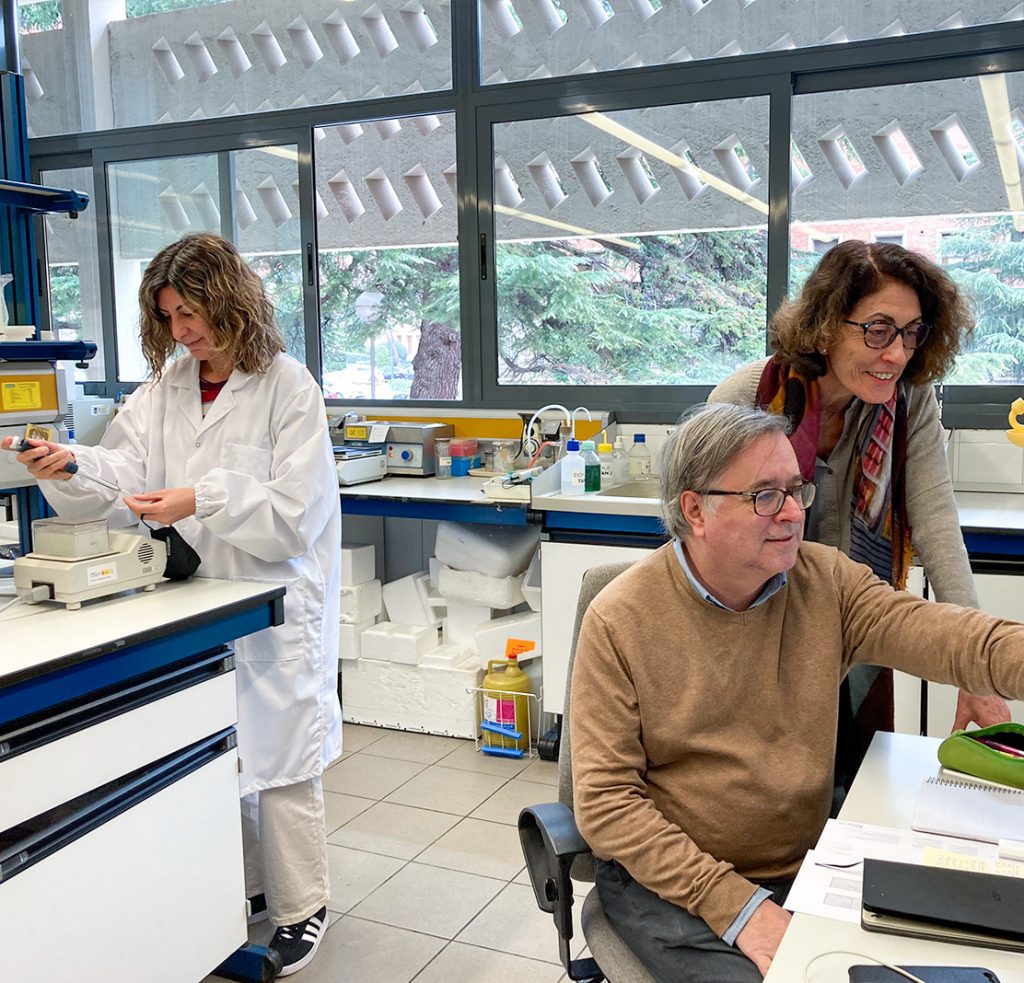
LATEST NEWS
Joan Villarroya presented a set of research findings highlighting the importance of autophagy in adipose tissue in relation to obesity and introduced his emerging research line, “Autophagy and Metabolism” (AUTOMET).
Cereijo for his role as co-organizer and to Tania Quesada-López for her award for best oral presentation “The problem of obesity in HIV therapies: effects of combined antiretroviral therapy in an obesity model.”
On the occasion of her appointment as patron of the 2024–2025 graduating classes of the Master’s students at the Faculty of Biology of the University of Barcelona, Marta Giralt presented on November 7 the current knowledge on the interrelationship between climate change and obesity, as well as our group’s research on this topic.
The development of anti-obesity drugs based on incretin agonists is revolutionizing obesity treatment. An analysis of the effects of these drugs, carried out by F. Villarroya, M. Peyrou, and M. Giralt, emphasizes the importance of adipose tissue and its plasticity in the biological response to these medications. The study has been published in Current Obesity Reports, a leading journal in establishing the state-of-the-art in obesity research.
People living with HIV under antiretroviral treatment show enhanced cardiovascular risk. A recent study by our team, led by Tania Quesada, Marta Giralt and Ruben Cereijo in collaboration with Pere Domingo from Hospital de la Santa Creu i Sant Pau, highlights the potential of abnormally reduced CXCL14 levels as a subclinical biomarker of cardiovascular disease in people living with HIV. The study has just been published in the European Journal of Pharmacology (Volume 1003, 15 September 2025, 177996 ). Click here for access to the video provided by the Cell Biologist platform, summarizing these findings.
The successful treatment of HIV through combinations of antiretroviral drugs significantly improved patient outcomes but earlier therapies had the unintended side effect of causing lipodystrophy. In recent years, the development of less toxic drugs has reduced the incidence of lipodystrophy, but growing evidence suggests that newer treatments may promote obesogenesis in people living with HIV. Marta Giralt addressed this topic as a speaker at the seminar “Metabolic Disorders in People with HIV: From Basic to Clinical,” organized by GeSIDA, the study group of SEIMC (Spanish Society of Infectious Diseases and Clinical Microbiology), focused specifically on HIV infection and related conditions. In her presentation, Dr. Giralt shared our team’s long- standing research on adipose tissue alterations in people living with HIV.
Our team contributed several relevant insights from our research to the ECO 2025 congress, an international event that brought together over 4,000 participants in Málaga. Francesc Villarroya delivered an invited lecture on recent advances regarding the relationship between brown adipose tissue, obesity, and aging. Carla Franco and Joan Villarroya presented their latest findings on the role of adipose tissue autophagy in obesity, while Marion Peyrou shared her experimental studies on the action of tirzepatide, a next-generation drug targeting obesity. Finally, Albert Blasco gave an oral presentation on the role of ACBP protein as a repressor of brown fat activity and its implications in obesity. In summary, a successful and inspiring contribution to advances in obesity research.
Using extensive analysis of cellular and preclinical experimental models, we identified ACBP, a regulatory protein that functions both intracellularly and as a secreted factor, as a negative regulator of brown fat activity. ACBP's influence on brown adipose tissue has significant implications for whole-body energy balance and systemic metabolism. This study is part of the PhD thesis research conducted by Albert Blasco in our laboratory. For access to article, see: https://doi.org/10.1016/j.molmet.2025.102153
Nearly 350 people gathered at the Blanes Theater to attend the conference "Is Our Body Fat Really a Problem?" presented by Dr. Marta Giralt, as part of the introductory cycle of the Blanes University Extension Program, affiliated with the University of Girona. In this informative session, Dr. Marta Giralt shared the latest advancements in the pathophysiology of adipose tissue, aimed at the general public. A successful achievement in disseminating our research to the general public!
On the occasion of International Day of Women and Girls in Science, celebrated on February 11, the Spanish Research Council (CSIC) released its ranked list of the top 10,000 women scientists in Spain. We are proud to announce that Dr. Marta Giralt, co-leader of our research team, is ranked among the top 2% of the most influential Spanish scientists.
Marta Giralt delivered the lecture "Obesity and Climate Change" at the SEEDO/EASO Joint Conference in Santiago de Compostela, Spain. The presentation highlighted the increasing recognition of global warming's contribution to the obesogenic environment, as well as the role of suppressed adaptive thermogenesis and reduced energy expenditure.
On January 16 and 17, 2025, the ADIPOBROAD meeting took place in Faculty of Biology, University of Barcelona. ADIPOBROAD is a thematic research network supported by the Ministry of Science, Innovation, and Universities in Spain. This network is coordinated by our research group and brings together 12 research groups from Spain involved in various aspects of research on adipose tissue plasticity and its impact on health. The meeting included participation from all the network's groups and international guests, with more than 60 attendees. Multiple interdisciplinary and collaborative research areas in adipobiology were identified during the meeting.
Stanford University has created a publicly available database of highly cited scientists, providing separate data for career-long impact and for single-year impact. Prof. Francesc Villarroya is ranked among the top 2% of influential researchers in both metrics, while Prof. Marta Giralt is recognized in the recent impact ranking.
On September 10th, our research group met in a retreat at the Pedro i Pons Foundation facilities, a 16th century building owned by the University of Barcelona thanks to a donation from Dr. Agustí Pedro i Pons in the last century. There, the current research projects and the organizational programming of the laboratory for the next academic year were planned.
Dr. Joan Villarroya, member of our team and recently appointed associate professor in our University, was selected to present his recent research in the CIBERobn symposium held in Zaragoza the 11-12 June. Disturbances in adipose tissue autophagy were highlighted in relation to obesity-related pathology.
We proudly contributed (a selected presentation by Albert Mestres, PhD student at our team, participation of the lecturer Ruben Cereijo in a round table) in the successful first edition of Early Career Day organized by IBUB, with a fruitful participation of close to one hundred young researchers.
That meeting, held in Copenhagen the 27-31 May gathered worldwide international experts in adipose tissue plasticity. Albert Mestres, PhD, and Marion Peyrou, recently appointed with the prestigious "Ramon y Cajal" researcher position at the University of Barcelona, presented, together with the PI researcher Dr Marta Giralt, the last results of our team on brown adipose tissue signaling properties.
Francesc Villarroya was invited to present our novel findings on human brown adipose tissue adipokines (batokines) recently identified in our laboratory. ENDO2024 was the annual meeting of the Endocrine Society in USA, held in Boston the 1-4 June, 2024.
Marion Peyrou, "Ramon y Calal" researcher, presented results on "Brown adipose tissue activation: a novel strategy to prevent/treat the hepatocarcinogenesis promoted by metabolic lipotoxicity" and Artur Navarro-Gascón, PhD student, presented his work "Meteorin-like regulates the acute phase post-myocardial infarction". Marion Peyrou was awarded with the best poster presentation. Congratulations!
Call addressed to candidates interested in developing a PhD Thesis in a highly
competitive international team on the characterization of new molecular actors
involved in adipose tissue plasticity and their role in metabolic diseases (diabetes,
obesity,..) and aging. See webpage: www.tamweb.es.
The experimentation associated with the thesis will involve integrated last-generation omics technologies in cellular and animal models, as well as translationalassays in samples from human patients.
Salary, years of contract duration and other work conditions will be according to the
standards in official calls from Ministry, Generalitat, UB.
Candidates should have the academic conditions for registering to a PhD program in
the academic year 2024-2025.
Interested candidates contact Dr. Francesc Villarroya by mail (fvillarroya@ub.edu)
attaching a letter of interest and a CV.
In a ceremony in the 18th century building that houses the Academy of Medicine of Catalonia, Dr. Pere Domingo was named a member of the Academy. Dr. Domingo is a long-time collaborator with whom we have been developing translational research on adipose tissue and metabolic alterations in people living with HIV for the last twenty years. Nearly twenty projects financed by public (Carlos III Health Institute, FIPSE, Fundació Marato TV3) and private companies and 70 joint publications account for this fruitful scientific collaboration, currently ongoing. Congratulations, Pere!
Cpril 23, Sant Jordi (Saint George's Day), is celebrated in Catalonia as the "day of the book and the rose." The Faculty of Biology organized a public multilingual reading of fragments of the Catalan book "Canto jo i la muntanya balla" in different languages. Niki Sciarrino, from the University of Hasselt (Belgium) and staying in our laboratory for master's thesis, participated as a reader of a chapter of the book in Dutch. Thank you Niki for your contribution!
Dr Milanski and the student Joao V. Da Silva Domingues are visiting our research team for several months to develop joint research program on the effects of interesterified triglycerides, a growing component of processed food, on metabolism.
A workshop on the subject "Using infrared thermography for measurement of brown adipose tissue in humans", leaded by Dr. Rubén Cereijo, lecturer at our research team, was held last 22 January at Facultat de Biología, Universitat de Barcelona. Infrared thermography is appearing as a very useful tool for non-invasive measurement of brown fat activity, specially useful in humans. Researchers from Institut de Recerca Santa Creu I Sant Pau, University of Campinas and Universidad Miguel Hernández, among others, attended the workshop.
LAST PUBLICATIONS
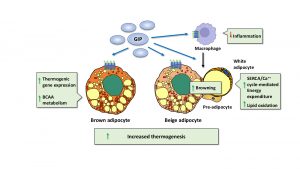
Adipose Tissue, at the Core of the Action of Incretin and Glucagon-Based Anti-Obesity Drugs.
Purpose of the review:
This review summarizes recent evidence highlighting the specific role of adipose tissue in the systemic effects of incretin agonist-based drugs used in the treatment of obesity.
Recent findings:
The development of incretin agonist-based drugs has achieved unprecedented success in the pharmacological treatment of obesity and the improvement of obesity-related comorbidities. While initially shown to significantly reduce adipose tissue through decreased food intake, incretin-based therapy is also increasingly reported to alter the properties of adipose tissue. Recent experimental and human studies indicate that these anti-obesity drugs induce significant changes in the metabolism and inflammatory state of adipose tissue, while also promoting its thermogenic plasticity. The direct and indirect actions of incretin-based anti-obesity drugs, which modify the properties of adipose tissue, are emerging as key contributors to the systemic health benefits of these treatments.
Francesc Villarroya
Marion Peyrou
Marta Giralt
PMID: 40892365 PMCID: PMC12405374
DOI: 10.1007/s13679-025-00660-w
CONTACT US
- 934021523 / 606148772
- g.moreno@ub.edu
- Departament de Bioquímica i Biomedicina Molecular.
Facultat de Biologia (UB)
Avda. Diagonal, 645
Edifici nou Pl. -1
08028 Barcelona


